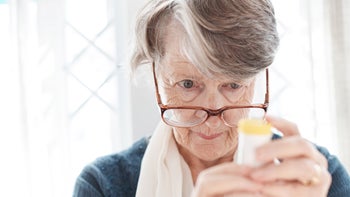
Can You Mix Benzodiazepines Like Xanax With Alcohol?
Key takeaways:
You shouldn’t combine benzodiazepines like Xanax (alprazolam) and alcohol. It can lead to excessive sleepiness, trouble breathing, and misuse.
Even one or two drinks isn’t safe if you’re taking Xanax. And you should wait at least 5 days after stopping Xanax to have a drink.
It’s best to avoid drinking alcohol if you take other anxiety medications, too. These include selective serotonin reuptake inhibitors (SSRIs) and buspirone.
Table of contents
It might be tempting to grab a bottle of beer or glass of wine after a long, stressful day. But if you’re taking benzodiazepines like Xanax (alprazolam), drinking alcohol might lead to serious consequences. Alcohol and benzodiazepines can both affect your concentration and make you feel sleepy or drowsy. These effects are intensified if you use both substances.
Can you take benzodiazepines like Xanax with alcohol?
No. It’s not a good idea to take benzodiazepines like Xanax with alcohol. Drinking alcohol while taking benzodiazepines can intensify the side effects of both substances. This can lead to serious consequences (more on that below).
Xanax is just one of many benzodiazepines that should be avoided with alcohol. Other common benzodiazepines include:
Ativan (lorazepam)
Valium (diazepam)
Klonopin (clonazepam)
Tranxene (clorazepate)
Is having one or two drinks OK?
No. It’s best to avoid alcohol completely if you take Xanax or other benzodiazepines.
Without benzodiazepines in your system, one or two drinks might not be dangerous for you. But you don’t know how your body will respond to the combination of benzodiazepines and alcohol. So it’s safer to avoid this combination.
How does alcohol interact with Xanax and other benzodiazepines?
Benzodiazepines enhance the actions of a brain chemical called gamma-aminobutyric acid (GABA). They do this by working on certain GABA receptors (binding sites) in the brain. GABA “slows” the brain down and can make you feel calmer. By enhancing GABA’s actions, benzodiazepines like Xanax relieve anxiety and stress.
Read more like this
Explore these related articles, suggested for readers like you.
Alcohol can also boost GABA activity and slow down the body. So taking Xanax and drinking alcohol can increase this effect to a dangerous level.
What are the dangers of mixing Xanax and alcohol?
Because Xanax and alcohol have similar effects, using both these substances at the same time can increase your risk of side effects. We’ll cover some of the most important risks to know about.
Extreme sleepiness or dizziness
Xanax and alcohol can both make you tired and dizzy. Because of this, they can both increase your risk of falling, especially in older adults. So using these substances together can lead to a greater chance of excessive sleepiness and falls.
If you’re taking a benzodiazepine, make sure you know how the medication affects you before driving a car or doing activities that require your attention.
Slower brain functioning
Benzodiazepines and alcohol can both affect your concentration skills and attention span. Taking these substances together can worsen your ability to focus and make you less aware of your surroundings.
Worsening memory
Alcohol can affect your memory just after drinking, especially if you experience a blackout. This is when someone drinks so much alcohol that they can’t remember much that occurred while they were drinking, if anything at all.
Alcohol can also affect your long-term memory. It can cause permanent brain damage and lead to alcohol-related dementia. People with this condition have memory loss and difficulty forming new memories.
Xanax may also cause memory loss while it’s still active in your body. When combined with alcohol, this effect can be worsened. And while there’s no solid evidence that Xanax can cause dementia, there’s a possible link between the two. However, we need further research to figure out how significant the link between benzodiazepines and dementia is.
Worsening of mental health conditions
Benzodiazepines may worsen mental health conditions, including depression. And alcohol can do the same. So using the two together may make you more likely to experience a mental health disorder, especially if you have existing depression.
Dependence and misuse
Benzodiazepines are controlled substances. That means they have the ability to cause physical dependence and misuse. Physical dependence is when your body relies on the presence of benzodiazepines in the blood to function normally. Medications that can cause dependence increase the risk for misuse and substance use disorder. Particularly, benzodiazepines like Xanax have a risk for sedative use disorder.
Alcohol can also be misused and lead to alcohol use disorder. And people who binge drink are more likely to use other substances like benzodiazepines or opioids.
Substance use disorders can have negative impacts in every area of your life, including your physical and mental health. If you take a benzodiazepine, make sure you take it exactly as prescribed. Don’t take more, or take it for longer, than your healthcare provider recommends.
If you or someone you know struggles with substance use, help is available. Call SAMHSA’s National Helpline at 1-800-662-4357 to learn about resources in your area.
Overdose
Using too much Xanax or alcohol can lead to an overdose. And when they’re combined, the risk is even greater.
A benzodiazepine overdose may cause extreme tiredness, confusion, or agitation. It can lead to low blood pressure and difficulty breathing. An alcohol overdose (or alcohol poisoning) can cause similar symptoms. It can also cause seizures.
Overdoses are life-threatening. This is a major reason why it’s not a good idea to drink alcohol if you take a benzodiazepine.
Can I drink after I’ve stopped taking Xanax?
Possibly. But Xanax can stay in your body even after you stop feeling its effects. Drinking alcohol before the medication leaves your body can cause side effects. So it’s a good idea to wait at least 5 days after taking Xanax to drink any alcohol.
If you’re prescribed Xanax, it’s important that you don’t stop taking your medication so that you can drink alcohol. If you’ve been taking Xanax regularly for longer than 3 to 4 weeks, stopping your medication suddenly can cause withdrawal symptoms to occur. Withdrawal symptoms may include:
Anxiety and restlessness
Nausea and vomiting
Trouble sleeping
Tremors or shaking
Diarrhea
Sweating
Benzodiazepine withdrawal can also cause more serious risks like seizures and delirium (severe confusion and lack of awareness). If you experience these symptoms, seek emergency care immediately.
Are other anxiety medications affected by alcohol?
Yes. This includes selective serotonin reuptake inhibitors (SSRIs) like escitalopram (Lexapro) and serotonin and norepinephrine inhibitors (SNRIs) like duloxetine (Cymbalta). These medications and alcohol affect the brain and impact your mood, sleep, and memory. And alcohol can raise the risk of side effects from these medications.
Buspirone is another medication that treats anxiety. Research shows it works just as well as Xanax. They also share some similar side effects, like dizziness and sleepiness (though to a lesser extent than Xanax). So it’s best to avoid drinking alcohol if you take buspirone.
Hydroxyzine (Vistaril) is another anxiety medication. It’s an antihistamine that can cause significant drowsiness and dizziness. It’s recommended that you avoid hydroxyzine with alcohol.
The risk of drinking alcohol with these medications is likely lower than the risk of drinking alcohol with benzodiazepines. But we don’t know exactly how much alcohol (if any) would be safe to drink with these anxiety medications. So it’s best to avoid drinking if you can. If you want to continue drinking alcohol occasionally while taking these medications, talk to your healthcare provider about the risks versus benefits.
The bottom line
Drinking alcohol with benzodiazepines like Xanax (alprazolam) is dangerous. The combination raises your risk of extreme sleepiness, breathing problems, and misuse. These negative side effects can lead to accidental injuries or even death.
Because of these serious risks, you should avoid alcohol entirely while you’re taking benzodiazepines like Xanax. You should also avoid drinking alcohol for at least 5 days after you stop taking Xanax so you can be sure it’s out of your system.
Why trust our experts?


References
Bounds, C. G., et al. (2023). Benzodiazepines. StatPearls.
Brett, J., et al. (2015). Management of benzodiazepine misuse and dependence. Australian Prescriber.
Centers for Disease Control and Prevention. (2022). Alcohol and other substance use.
Centers for Disease Control and Prevention. (2022). Alcohol use and your health.
Crowe, S. F., et al. (2017). The residual medium and long-term cognitive effects of benzodiazepine use: An updated meta-analysis. Archives of Clinical Neuropsychology.
Davies, M. (2003). The role of GABAA receptors in mediating the effects of alcohol in the central nervous system. Journal of Psychiatry and Neuroscience.
Díaz-Gutiérrez, M. J., et al. (2017). Relationship between the use of benzodiazepines and falls in older adults: A systematic review. Maturitas.
Hirschtritt, M. E., et al. (2020). Benzodiazepine and unhealthy alcohol use among adult outpatients. American Journal of Managed Care.
Longo, L. P., et al. (2000). Addiction: Part I. Benzodiazepines—side effects, abuse risk and alternatives. American Family Physician.
National Institute on Alcohol Abuse and Alcoholism. (2014). Harmful interactions.
National Institute on Alcohol Abuse and Alcoholism. (2020). Understanding the dangers of alcohol overdose.
Tzambazis, K., et al. (2000). Alcohol impairs speed of information processing and simple and choice reaction time and differentially impairs higher-order cognitive abilities. Alcohol and Alcoholism.
U.S. Food and Drug Administration. (2020). FDA requiring boxed warning updated to improve safe use of benzodiazepine drug class.





























